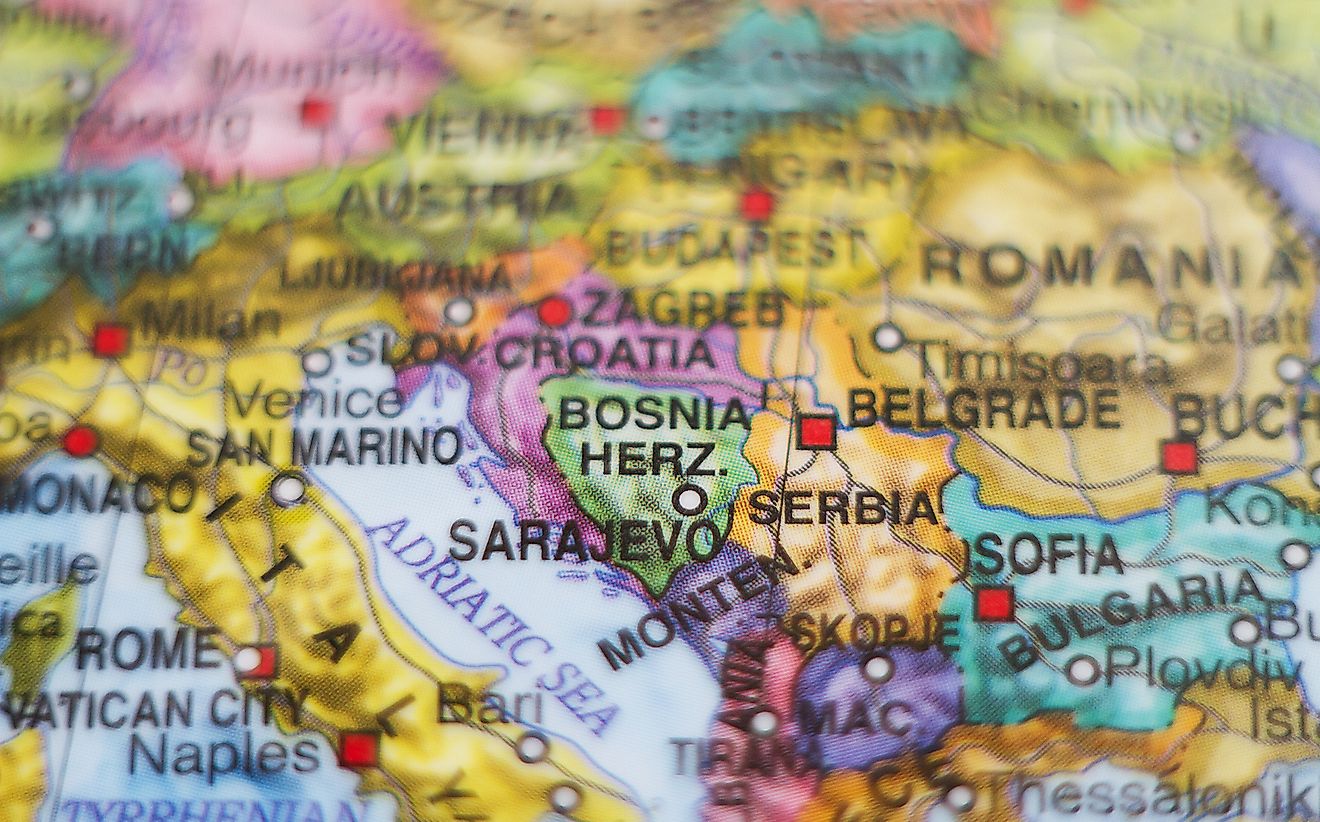Is Greece in the Balkans?

The Balkans is in the South East European region with a population of approximately 55 million. There are twelve countries in the Balkan Peninsula: Montenegro, Croatia, Albania, Bosnia Herzegovina, North Macedonia, Romania, Serbia, Slovania, Kosovo, and Bulgaria.
Is Greece in the Balkans?
Portions of Greece and Turkey are in The Balkans. Greece is located south of The Balkans. Geographically it is bordered by Aegean, Ionian and Crete Seas and 4 countries which are Albania, Bulgaria, Turkey and North Macedonia. Related sea borders to Greece are Italy, Egypt and Libya. The continental borders are Africa and Asia and its border to the South is the Mediterranean Sea.
Historical Background
Between 1926 and 1928, there were negotiations between Greece and Yugoslavia over the Port of Thessaloniki. Yugoslavia was part of the Balkan Peninsula. In 1929 it was divided into two states, Serbia and Montenegro. Later in 2006 it was partitioned and 4 more States were developed which include Bosnia, Herzegovina, Croatia and Macedonia. The negotiations between the Balkan states including Greece came about because there needed to be an understanding between the countries, which led to formulation of a treaty to be adhered to in the following years. Currently, the port of Thessaloniki is a large Greek seaport which is a main gateway for Southern Europe and Balkan hinterland.
Apart from the geographical location of Greece which supports the justification of it being in the Balkans, the history of Independence also goes hand in hand. Greece, Serbia, Montenegro, and Bulgaria, all of which are Balkan countries were colonized by the Ottoman Empire. Later Greek revolts fought against the Ottoman Empire and got their independence on March 25, 1821.
According to history, in the year 1913 Greece was a Balkan League Ally. The Balkan Ally was a military alliance formed between the Balkan nations, put forward by Russia. In the war, the Greece defeated the Bulgarians. The Yugoslavian states make up the majority of the Balkans. Other nations like Greece, Romania and Albania are considered as ethnic minorities but are still part of the peninsula. Tracing back the decorative pattern of Greece which resembles that of Servia and Bulgaria, this justifies Greece as a Balkan state apart from the fact that the nation’s share similar figurines such as Gold, Stone and Copper tools.
The majority of Greece is mountainous, with numerous mountains such as Pindus, Olympus, Musala and Rila. The 'Balkans' word means ‘mountain’, named so because of the many mountains which outstretch within the region. Furthermore, the history of the Byzantine Greeks which dates back to the eleventh century show one of the areas where most of them lived as in the Southern Balkans.
However, there are disclaimers about Greece not being one of the Balkan nations because of many differences including historically where the Greeks did not fall into communism, and them not being among the six countries of Yugoslavia.











